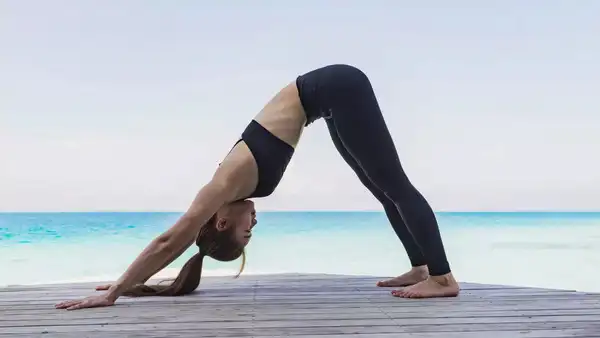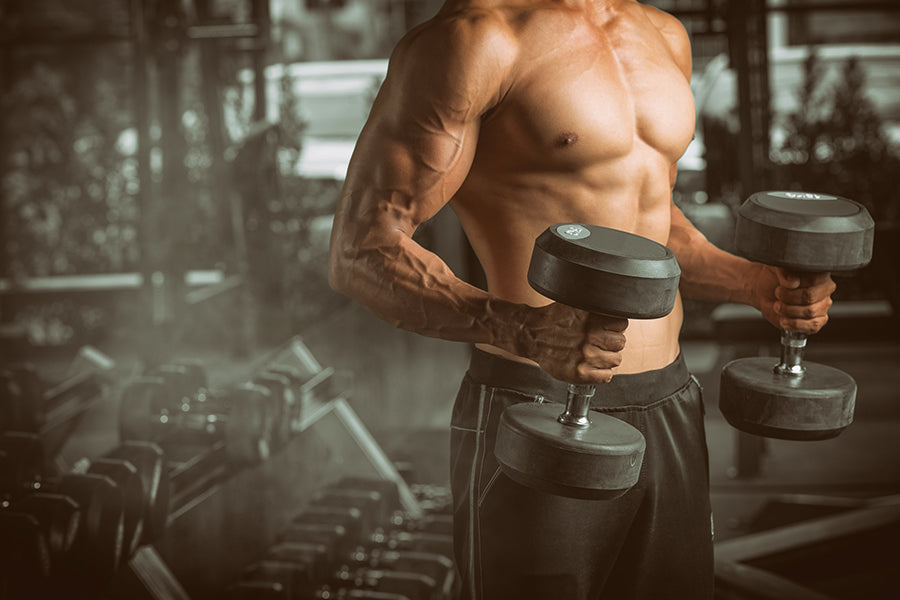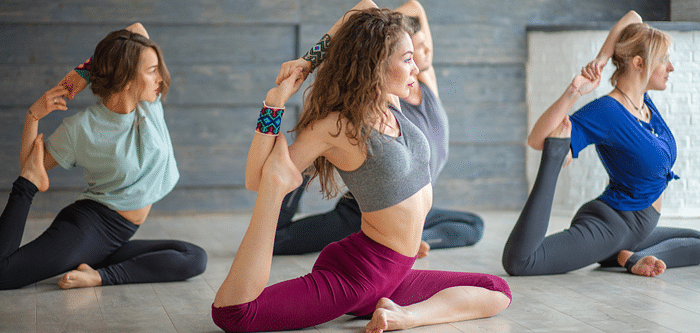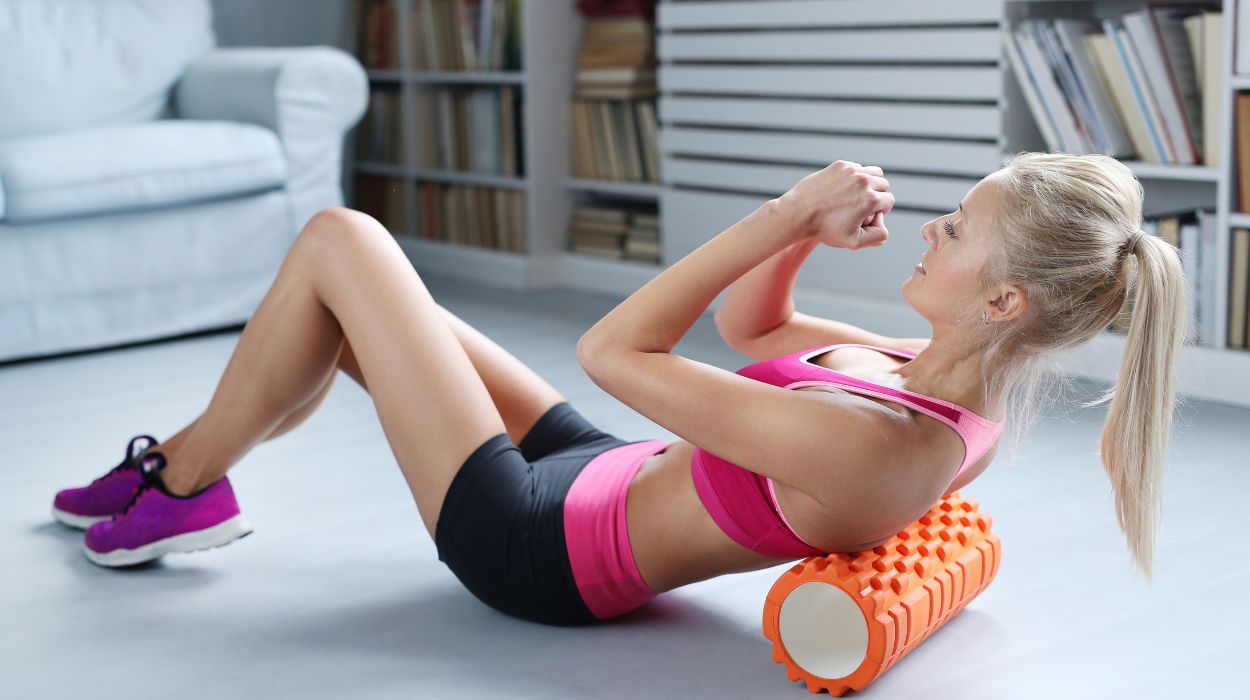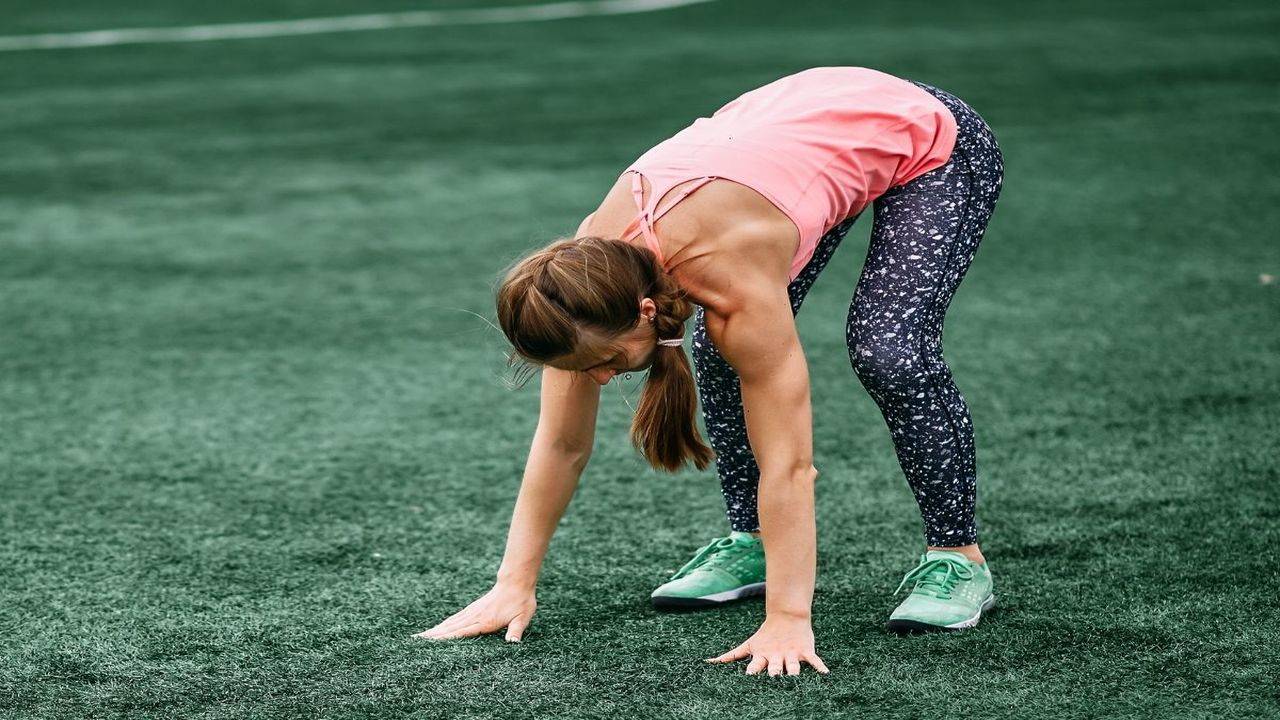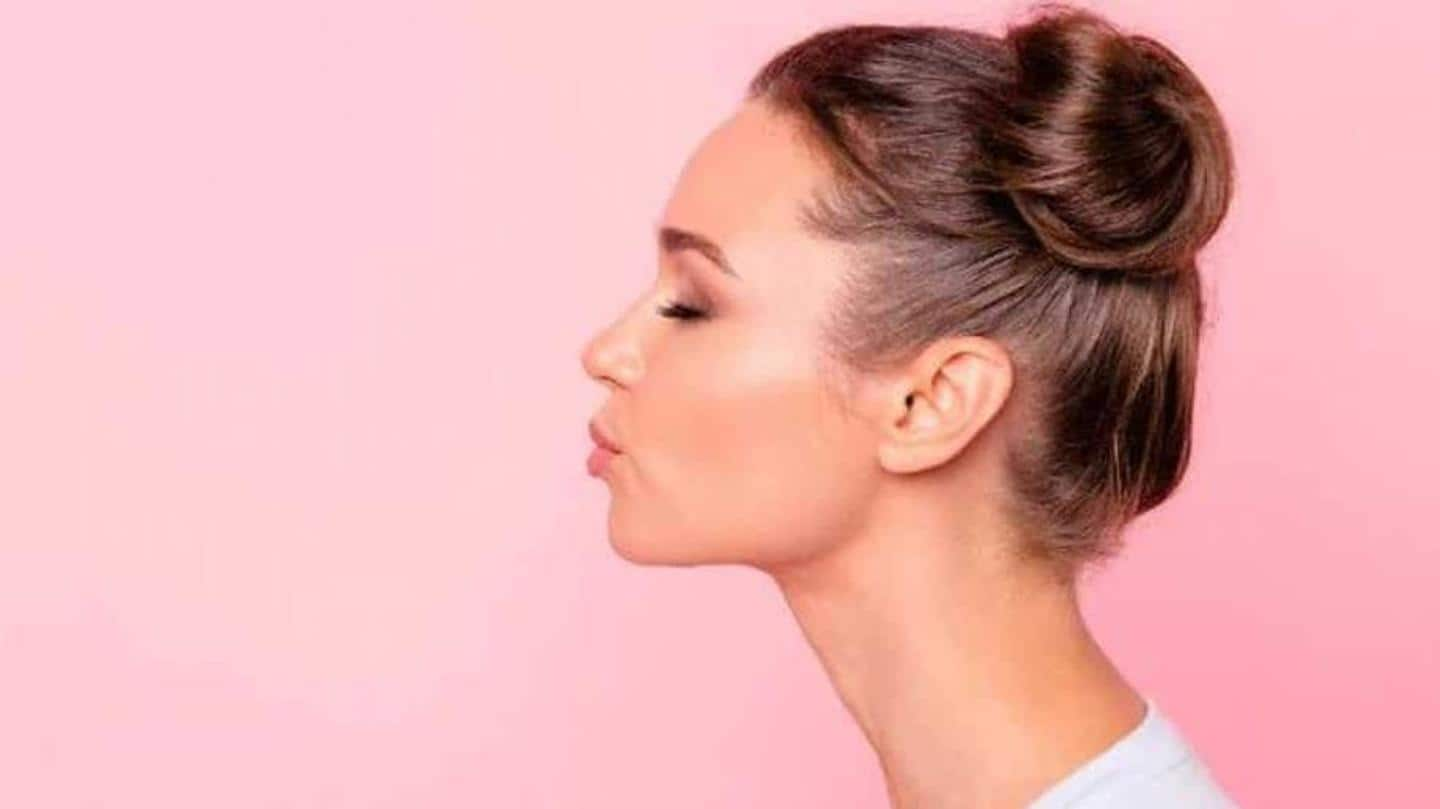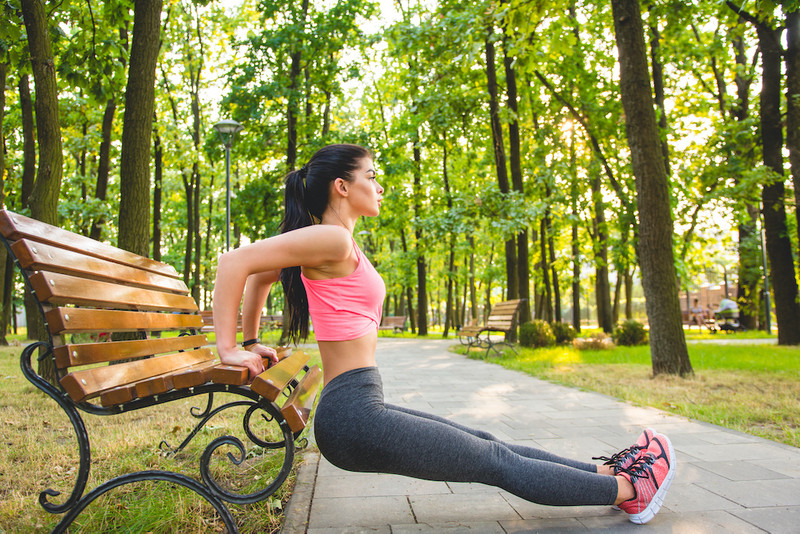It’s all about isometric contraction—holding a position where your muscles stay under tension.
In Downward Dog:
- Your triceps fire up to keep your elbows stable
- Your deltoids support the upper body
- Your forearms and wrists bear your body weight
- Your lats and upper back work to pull the chest deeper
That’s a full upper-body workout happening in one static yoga pose.
The longer you hold it (with proper alignment), the more time under tension you create—and that’s the key to building definition.
Step-by-Step Guide to Perfect Adho Mukha Svanasana
Getting the form right matters. If you’re collapsing into your shoulders or rounding your spine, you’re not going to activate the right muscles. Follow this step-by-step guide to make sure you’re nailing the pose:
1. Start in a Tabletop Position
Hands under shoulders, knees under hips. Spread your fingers wide and press into the mat.
2. Tuck Your Toes
Lift your knees off the ground.
3. Push Your Hips Up and Back
Straighten your legs as much as you can without rounding your back. Form a V-shape with your body.
4. Align Your Hands and Feet
Hands should be shoulder-width apart. Feet hip-width. Heels reaching toward the ground.
5. Press Through the Palms
Feel your arms lengthen. Press away from the floor as if lifting your torso.
6. Relax the Head and Neck
Let it hang naturally between your arms, gaze toward your knees or navel.
Common Mistakes That Reduce Arm Engagement
If you want shapely, sculpted arms from Downward Dog, avoid these common errors:
1. Collapsing into the Shoulders
This means your shoulders are taking all the weight. Instead, actively push the ground away and keep your shoulder blades wide.
2. Bent Elbows
It makes the pose easier—but it also cheats your arms out of hard work. Try to keep the arms straight without locking them.
3. Letting the Hands Slide Inward
When your hands get too close together, your shoulders round and arms disengage. Keep your hands shoulder-width and fingers spread.
4. Not Holding the Pose Long Enough
Holding for 5 seconds won’t do much. Start with 30-second holds and build up to 1–2 minutes.
How Often Should You Practice It?
For visible changes in your arms, 3 to 5 times a week is ideal. You can either:
- Hold the pose longer (up to 2 minutes)
- Repeat it in a flow (5–6 reps)
- Combine it with other arm-focused poses like Plank or Chaturanga
Consistency is key here. You don’t need to do 100 push-ups. Just make Downward Dog a regular part of your daily movement.
Variations to Boost Arm Toning
Want to take things up a notch? These variations will challenge your arms even more.
1. Downward Dog to Plank Flow
Move from Downward Dog into a full Plank, hold for 3–5 seconds, then return. Repeat 8–10 times.
2. Three-Legged Downward Dog
Lift one leg straight up while holding the pose. It forces more weight into your supporting arm.
3. Dolphin Pose
Lower your elbows to the floor while keeping the Downward Dog shape. It targets your shoulders even deeper.
Additional Benefits (Beyond Just Arm Toning)
This pose doesn’t just shape your arms—it supports your entire body and well-being:
- Lengthens hamstrings and calves
- Relieves back stiffness
- Strengthens the core
- Improves posture
- Boosts circulation and calms the nervous system
It’s basically yoga’s version of a full-body reset.
Nutrition + Yoga = Results
Yoga will tone and shape, but visible definition comes when you pair it with a balanced lifestyle. For lean, defined arms:
- Drink lots of water
- Get quality protein in your diet (lentils, tofu, eggs, chicken)
- Minimize excess sugar and processed food
- Include some light cardio or walking to burn excess fat
You don’t need a restrictive diet—just consistent healthy choices.
Real Talk: What Results Can You Expect?
If you’re consistent with Downward Dog and your nutrition, you’ll start noticing:
- Firmer triceps
- More shoulder definition
- Better posture (which makes arms look leaner)
- Less jiggle and more tone
You won’t bulk up—yoga shapes lean muscle, not bulky size. So if your goal is sculpted, slim arms, this is a perfect path.
Final Thoughts
Adho Mukha Svanasana may look peaceful on the outside, but make no mistake—it’s a strength-building powerhouse, especially for your upper body. When practiced correctly and consistently, it can absolutely help tone and define your arms without a single weight.
So instead of rushing through it as a transition pose, start owning it. Stay longer. Focus on the muscles working. Breathe into the challenge.
And in time, you’ll notice your arms not just looking better—but feeling stronger, too.
